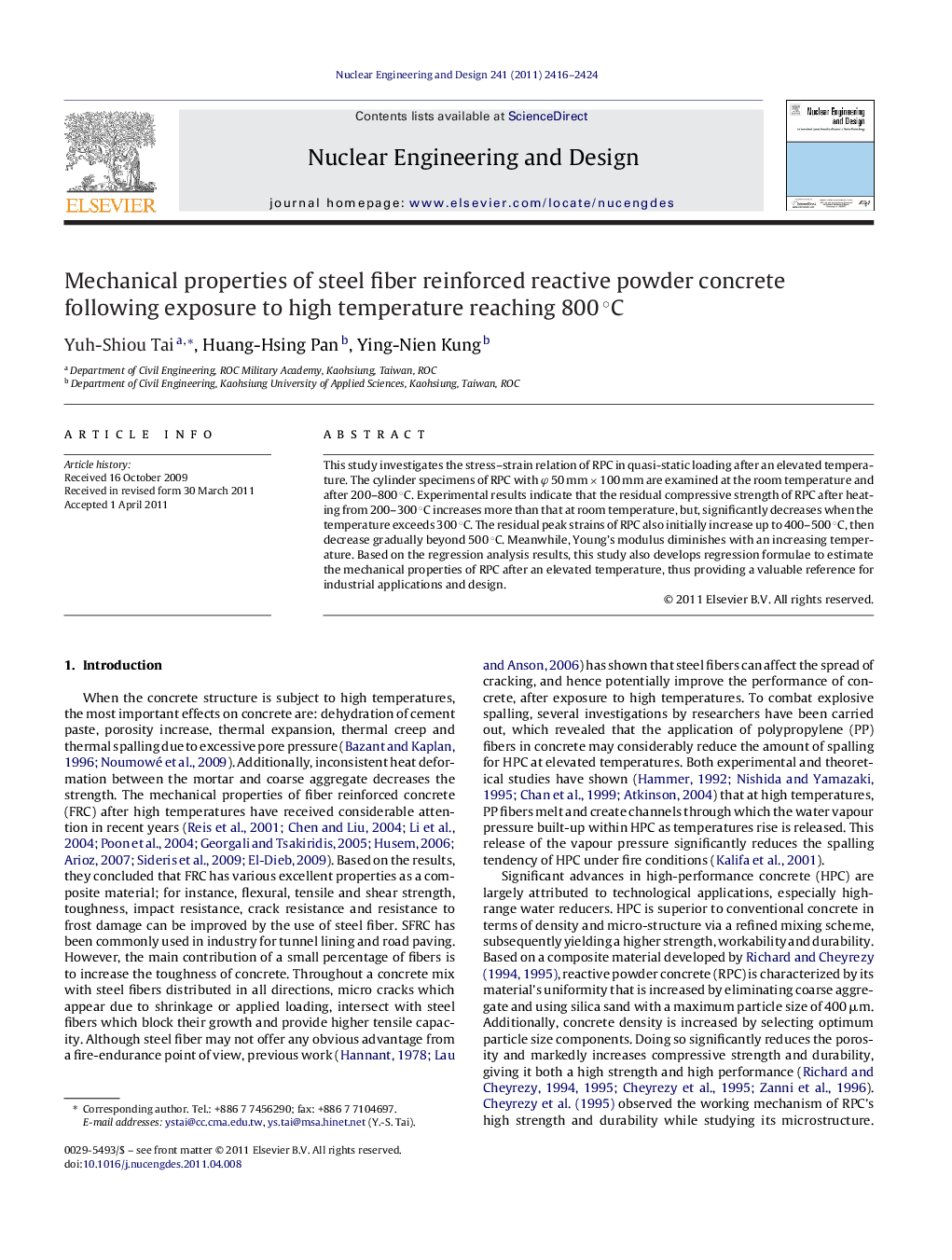| Article ID | Journal | Published Year | Pages | File Type |
|---|---|---|---|---|
| 297542 | Nuclear Engineering and Design | 2011 | 9 Pages |
This study investigates the stress–strain relation of RPC in quasi-static loading after an elevated temperature. The cylinder specimens of RPC with φ 50 mm × 100 mm are examined at the room temperature and after 200–800 °C. Experimental results indicate that the residual compressive strength of RPC after heating from 200–300 °C increases more than that at room temperature, but, significantly decreases when the temperature exceeds 300 °C. The residual peak strains of RPC also initially increase up to 400–500 °C, then decrease gradually beyond 500 °C. Meanwhile, Young's modulus diminishes with an increasing temperature. Based on the regression analysis results, this study also develops regression formulae to estimate the mechanical properties of RPC after an elevated temperature, thus providing a valuable reference for industrial applications and design.
► The stress–strain relation of reactive powder concrete after exposure to high temperatures are tested by using displacement control. ► Develops regression formulae to estimate the mechanical properties of RPC. ► Valuable experimental data have been obtained about RPC with various fiber contents. These data include compressive strength, peak strain and modulus of elasticity.
